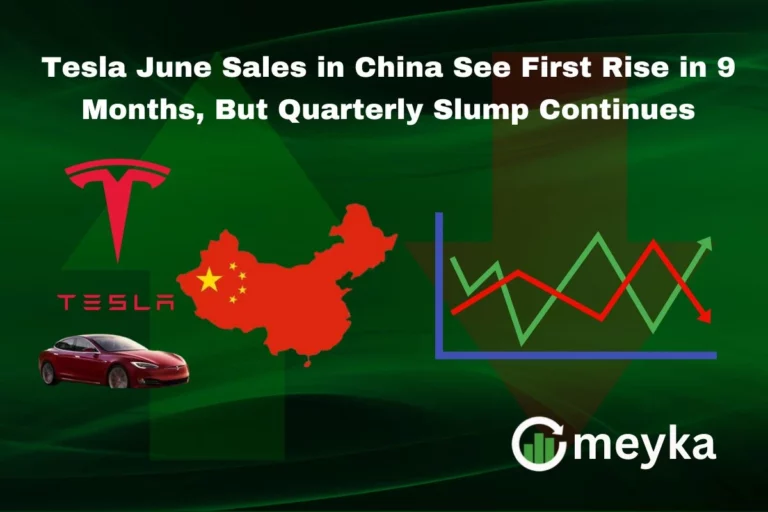Bristol Myers Sells 60% Holding in China Partnership Deal
Bristol Myers Squibb has taken another significant step in reshaping its global strategy. The company has officially announced the sale of its 60% stake in a long-standing China partnership. This move has attracted the attention of global investors, stock market analysts, and healthcare industry experts who are closely tracking the changing dynamics of pharmaceutical expansion in Asia.
As the healthcare landscape evolves, multinational drugmakers like Bristol Myers are rethinking their global footprints. The decision to divest its majority holding signals both a strategic reset and an opportunity for investors to reassess the company’s long-term potential.
Why Bristol Myers Chose to Sell its Stake in China
Bristol Myers has maintained a deep presence in China for years, participating in one of the world’s fastest-growing pharmaceutical markets. However, in recent years, the competitive and regulatory environment has grown more complex.
By selling a 60% holding, Bristol Myers is not leaving China entirely but is reducing its exposure. Instead of managing direct operations, the company will focus on leveraging collaborations and licensing deals. This step allows it to concentrate on innovation, particularly in areas such as oncology, cardiovascular, and immunology.
The divestment reflects a larger trend: global pharmaceutical leaders adjusting their strategies in response to pricing pressures, patent challenges, and the rise of local competitors in the Chinese market.
Impact on Global Investors and the Stock Market
The deal is being closely evaluated in stock research circles. Investors are analyzing whether the divestment signals caution in emerging markets or a sharpened focus on high-value sectors.
For the stock market, the move highlights how major pharmaceutical companies balance growth opportunities with risk management. While China remains a crucial market, the increasing dominance of local biotech firms has created hurdles for global giants.
Bristol Myers’ decision may free up capital for expansion in other markets, or even for investments in promising areas like AI stocks, which are transforming research and development pipelines in healthcare.
Bristol Myers’ Focus on Innovation and R&D
With this divestment, Bristol Myers is signaling a renewed concentration on research and development. The company is known for pioneering treatments in oncology and cardiovascular diseases. As patents on blockbuster drugs face expirations, innovation remains its most valuable asset.
Instead of spreading resources thin across multiple geographies, the company is doubling down on therapeutic areas with high unmet needs. For patients and healthcare providers, this may translate into faster drug development and access to cutting-edge treatments.
The Strategic Importance of China’s Pharmaceutical Market
China has become one of the most important markets for drugmakers. Rising healthcare spending, a growing middle class, and government reforms have created vast opportunities. However, the market is not without challenges.
Regulatory reforms are prompting companies to reduce prices on life-saving drugs, while domestic players are becoming increasingly competitive. For Bristol Myers, selling the 60% holding reduces exposure to these risks, while still maintaining a foothold through strategic agreements.
This cautious approach may prove wise in the long run, as it preserves the company’s presence in China without bearing the full weight of operational hurdles.
How the Deal Shapes Bristol Myers’ Global Outlook
The sale of the China stake is more than just a regional decision; it is part of Bristol Myers’ global transformation. The company is reorganizing to strengthen its position in major developed markets while strategically partnering in regions where growth potential is balanced with regulatory complexity.
This approach ensures a more sustainable growth model. It aligns with a trend among multinational pharmaceutical companies, many of which are restructuring global operations to maximize innovation while reducing unnecessary risks.
Investor Sentiment and Market Reaction
Early investor reactions to the deal suggest cautious optimism. While some stock market analysts view the sale as a retreat from a critical growth region, others highlight its potential to unlock value for shareholders.
From a stock research perspective, the deal gives Bristol Myers the liquidity to invest in high-potential assets. The growing integration of artificial intelligence in drug discovery, clinical trial design, and patient care represents a key opportunity. With competitors exploring AI stocks, Bristol Myers is well-positioned to channel resources into digital transformation.
What This Means for the Future of Healthcare Partnerships
The divestment also underscores a broader industry shift. Partnerships, joint ventures, and licensing agreements are becoming the preferred models for expansion. Instead of direct ownership, companies are pursuing collaborations that allow them to remain competitive while managing risk.
For Bristol Myers, the strategy may result in more flexibility. The company can form alliances with local biotech firms in China, tapping into their market expertise while focusing on what it does best: advancing global science and innovation.
Key Takeaways
The sale of Bristol Myers’ 60% holding in its China partnership is a defining moment for the company’s strategy. It reflects the balance between global ambition and pragmatic market engagement. For investors, it serves as a reminder that the pharmaceutical industry is not just about scientific breakthroughs, but also about navigating global economics and regulations.
The deal allows Bristol Myers to sharpen its focus on R&D, explore opportunities in new technologies like AI, and strengthen its financial flexibility. In the fast-changing stock market, such moves could help the company remain resilient and future-focused.
FAQs
Bristol Myers sold its 60% holding to reduce exposure to regulatory and competitive challenges in China while focusing on innovation and global R&D.
The long-term impact depends on how the company reinvests the proceeds. Analysts believe it could support innovation, acquisitions, or expansion into high-growth areas like AI-driven healthcare.
Yes, although it sold its majority stake, the company continues to maintain a presence through partnerships and strategic collaborations.
Disclaimer:
This content is made for learning only. It is not meant to give financial advice. Always check the facts yourself. Financial decisions need detailed research.






